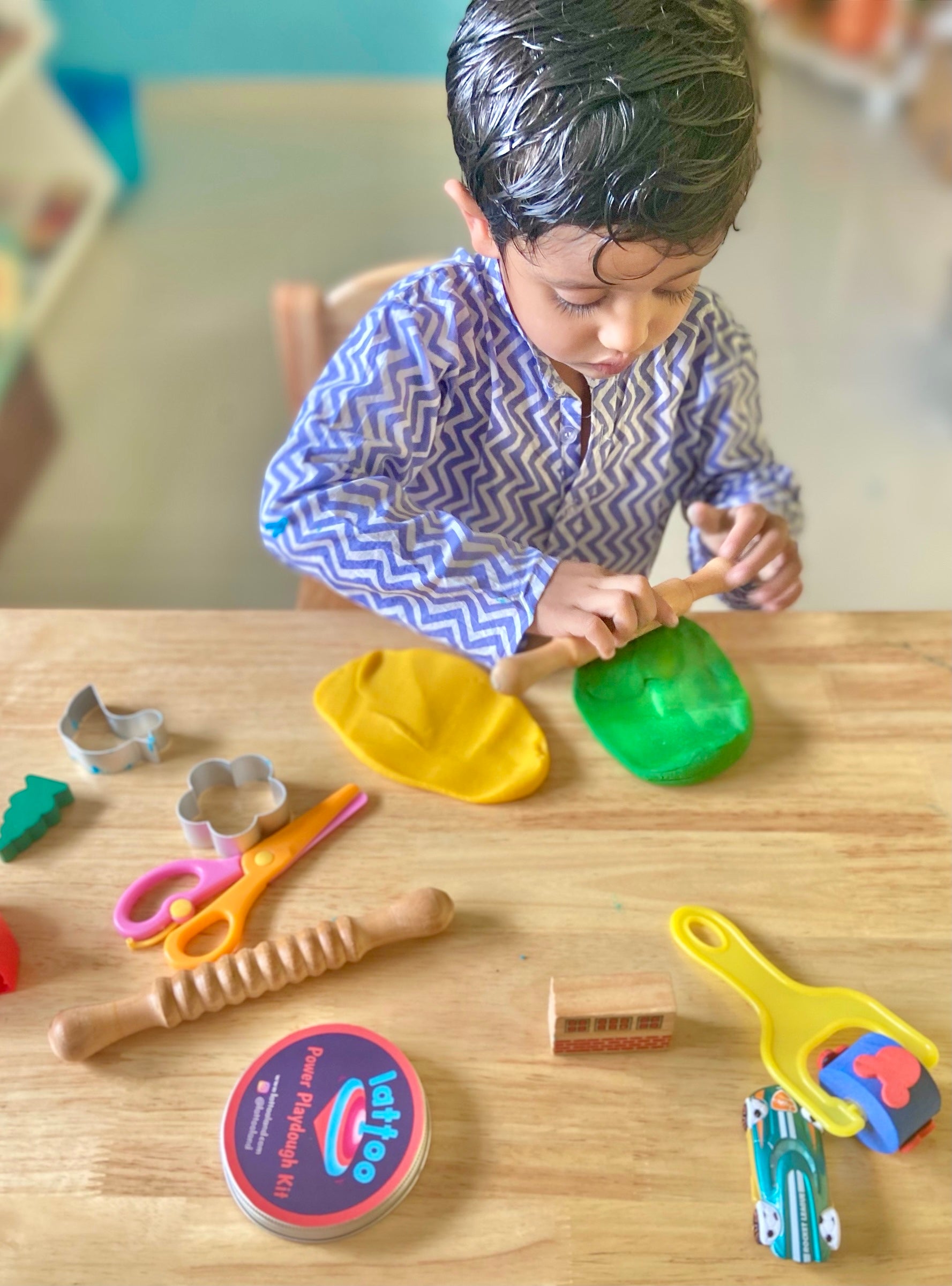How Pretend Play can boost child's brain power ?
Pretend play is an essential part of childhood, providing numerous benefits for children as they grow and develop. From imaginative play with clay dough, cars to sensory play silks to role-playing games, there are numerous opportunities for children to engage in fun, educational activities that encourage their creativity and problem-solving skills. In this blog, we'll explore some of the many benefits of pretend play for kids.
- Promotes Creativity: Pretend play allows children to express themselves freely, encouraging their imagination and creativity. Through role-playing games, kids can act out different scenarios, allowing them to explore new perspectives and ideas.
-
Develops Social Skills: Pretend play helps children learn how to interact with others and develop their social skills. Children learn to communicate, share, and cooperate with others, building important life skills that will serve them well in the future.
-
Enhances Emotional Intelligence: Pretend play helps children understand and express their emotions, allowing them to process their feelings in a healthy and safe way. Through role-playing games, children can experience and understand different emotions, improving their emotional intelligence.
-
Improves Cognitive Development: Pretend play is a fun and engaging way for children to develop their cognitive skills. Through problem-solving and decision-making, children learn to think critically, improving their cognitive development.
-
Encourages Language Development: Pretend play helps children improve their language skills, as they engage in conversations and use new words and expressions. This type of play also helps children learn to listen and respond appropriately, developing their communication skills.
-
Builds Fine Motor Skills: Pretend play can help children develop their fine motor skills, as they manipulate small objects, build structures, and engage in other hands-on activities. This type of play also improves hand-eye coordination and dexterity.
In conclusion, pretend play is a valuable aspect of a child's development, providing numerous benefits that help shape their social, emotional, and cognitive skills. From imaginative play with dolls and toys to role-playing games, there are numerous opportunities for children to engage in fun, educational activities that encourage their creativity and problem-solving skills. So, next time you're looking for a fun activity to do with your kids, consider some pretend play and watch their skills grow!
Featuring Tanvi gupta's little bundle of joy playing with Lattooland's mini candy cupcake clay dough kit











